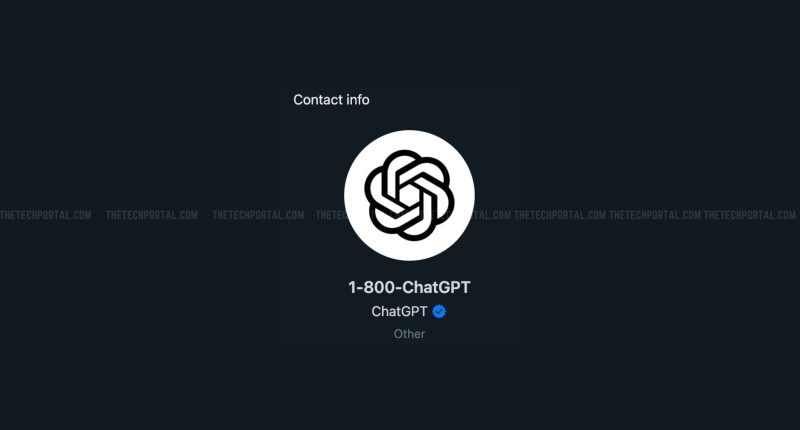Last year, ChatGPT made its debut on the popular messaging app WhatsApp, which can be accessed by using the number 1-800-CHATGPT (1-800-242-8478). Now, this service has received several new upgrades and features that are similar to those on the official website or app version of the chatbot. One of the most prominent new features is that the WhatsApp version of ChatGPT now accepts image inputs, in addition to text.
Speaking of details, going forward, using the WhatsApp version of ChatGPT users can now send/add a photo (either by taking one with the phone’s camera or selecting an image from the gallery) and ChatGPT will analyze it and respond with a text-based answer.
In addition to sending text and images, users can now send voice messages to ChatGPT on WhatsApp. ChatGPT will listen to the spoken message, process it, and respond with a text-based answer within the chat. This feature is particularly useful when users are on the go and might not have the time or ability to type out a message.
Starting January 5, OpenAI also introduced account linking for ChatGPT users on WhatsApp. Now, users with Plus, Free, and Pro subscriptions can link their existing ChatGPT accounts directly to WhatsApp. For those with a paid subscription (Plus or Pro), this gives access to higher usage limits and possibly more advanced models, depending on the tier.
Even Free-tier users can benefit, as OpenAI recently made some advanced reasoning models available to them. Essentially, account linking ensures that the features and capabilities tied to users’ ChatGPT subscriptions are available while using the Meta-owned instant messaging app.
However, OpenAI’s ChatGPT is not the only AI assistant available on WhatsApp. In fact, Meta’s own AI chatbot is also available on the app. Many other AI chatbot makers have also entered the messaging app, including Microsoft’s Copilot.
Talking about availability, the recent updates have been made available to all users, including those in India, which is one of the largest user bases for WhatsApp. OpenAI states that these updates are designed to promote inclusivity, making ChatGPT accessible to more users, especially in countries like India. Interestingly, OpenAI seems to be aggressively pushing its AI capabilities across various modes and models as a new competitor from China emerges, called “DeepSeek,” which claims to be a low-cost alternative to the US-based firm.
The Tech Portal is published by Blue Box Media Private Limited. Our investors have no influence over our reporting. Read our full Ownership and Funding Disclosure →






